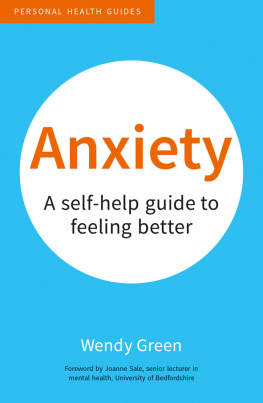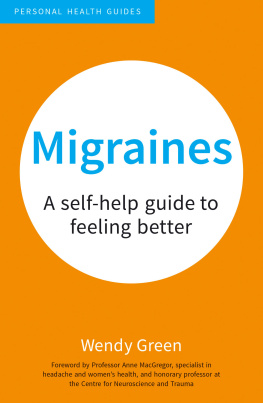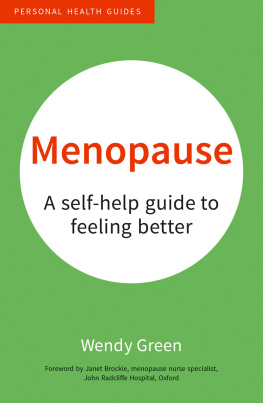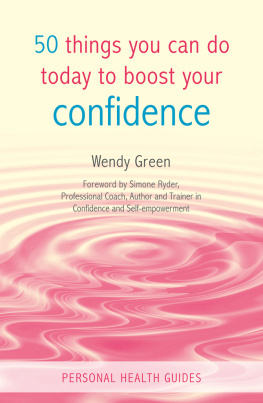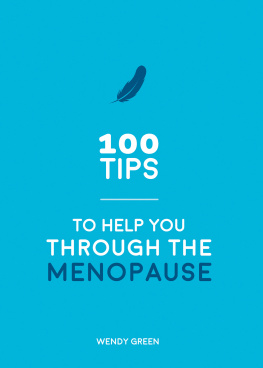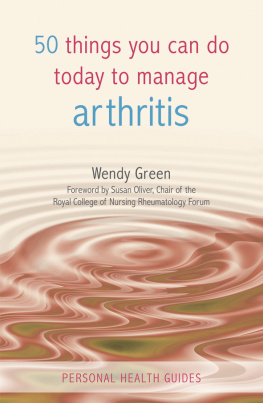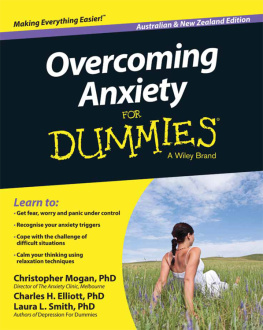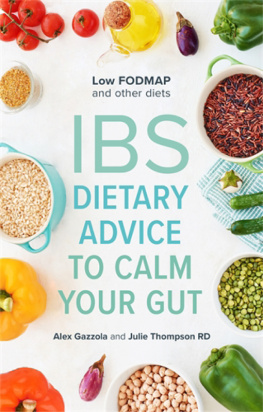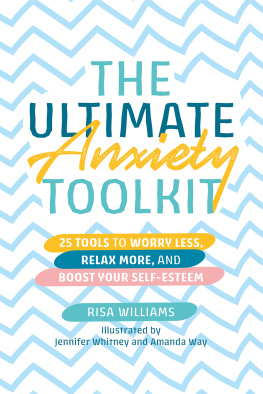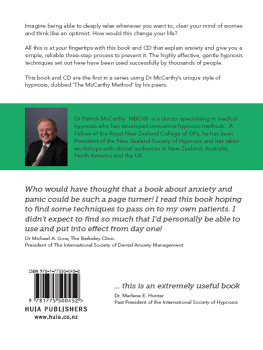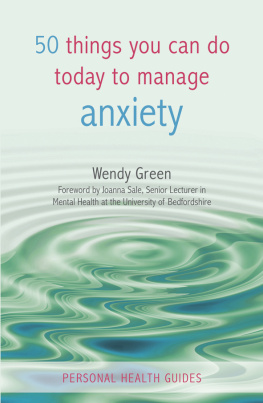ANXIETY: A SELF-HELP GUIDE TO FEELING BETTER
First published in 2010 as 50 Things You Can Do Today to Manage Anxiety
Reprinted 2011, 2013
This revised edition copyright Wendy Green, 2016
All rights reserved.
No part of this book may be reproduced by any means, nor transmitted, nor translated into a machine language, without the written permission of the publishers.
Wendy Green has asserted her right to be identified as the author of this work in accordance with sections 77 and 78 of the Copyright, Designs and Patents Act 1988.
Condition of Sale
This book is sold subject to the condition that it shall not, by way of trade or otherwise, be lent, resold, hired out or otherwise circulated in any form of binding or cover other than that in which it is published and without a similar condition including this condition being imposed on the subsequent purchaser.
Vie Books is an imprint of Summersdale Publishers Ltd
Summersdale Publishers Ltd
46 West Street
Chichester
West Sussex
PO19 1RP
UK
www.summersdale.com
eISBN: 978-1-78372-736-0
Substantial discounts on bulk quantities of Summersdale books are available to corporations,professional associations and other organisations. For details contact Nicky Douglas bytelephone: +44 (0) 1243 756902, fax: +44 (0) 1243 786300 or email: .
Disclaimer
Every effort has been made to ensure that the information in this book is accurate and current at the time of publication. The author and the publisher cannot accept responsibility for any misuse or misunderstanding of any information contained herein, or any loss, damage or injury, be it health, financial or otherwise, suffered by any individual or group acting upon or relying on information contained herein. None of the opinions or suggestions in this book are intended to replace medical opinion. If you have concerns about your health, please seek professional advice.
To my husband, Gordon, and my brother, Keith
Acknowledgements
Id like to thank Joanne Sale, senior lecturer in mental health at the University of Bedfordshire, for kindly agreeing to write a foreword. Thanks also to Jennifer Barclay for commissioning this book and to Anna Martin, Sarah Scott and Sophie Martin for their very helpful editorial input.
Contents
Authors Note
We all feel anxious from time to time, for example, before sitting an important exam or giving a public speech. This may be partly because our lives are increasingly busy, with many people combining full-time jobs with raising a family and perhaps caring for elderly parents; there are also many other aspects of modern life that people find stressful. When we are feeling under pressure, its natural to feel anxious. I am normally a fairly calm person, but I do become anxious sometimes usually when Im feeling as though I have too much to do. Ive also noticed that I often worry about what might happen, rather than what is happening.
Ive found that an effective way to banish anxiety is to focus on dealing with what is important now, rather than thinking about something that hasnt happened yet and perhaps never will. I also find that taking good care of myself by eating well and exercising helps me cope better when Im feeling under pressure.
As with most conditions, there is no magical formula that will work for everyone with anxiety. However, I believe that an integrated approach, combining dietary and lifestyle changes with modifications to the way you think and behave and appropriate supplements and medication where necessary, offers the best chance of relief from anxiety for most people.
Wendy Green
Foreword
In its clinical guidelines on the management of anxiety, the National Institute for Health and Clinical Excellence (NICE) states that anxiety disorders are neither minor nor trivial. It goes on to suggest that experiencing anxiety disorders can cause the sufferer great distress and that this can be persistent. Self-help encouraging individuals to take responsibility for their well-being is now being promoted as a way of overcoming anxiety, so any book that can help individuals who are prone to anxiety is to be welcomed. I believe that I would have found this a very useful resource, had it been available during the period of anxiety I experienced when my mother was dying.
This book offers people who are suffering from anxiety clear and current information and approaches. It manages to balance complementary approaches (where the evidence is often anecdotal) with the frequently predominant medical model (with its focus on evidence based on research findings). In doing this, it provides a comprehensive range of explanations and strategies, thus enabling the discerning reader to try out a multitude of options.
This book is written in a manner that allows the reader to dip in and out of it, while focusing on the particular approaches that may interest them. Its explanations are brief but precise, making it easy to follow, in particular during periods of anxiety or panic.
Many of the approaches discussed in this book may seem to be common sense, but these are often the things that we forget, and the benefits of being reminded of these is this books strongest asset.
Joanne Sale, senior lecturer in mental health, University of Bedfordshire
Introduction
According to a YouGov survey of 2,330 UK adults (aged 18 plus)commissioned by the Mental Health Foundation in 2014, almost one in five people feel anxious nearly all of the time, or a lot of the time. A further 41 per cent of people feel anxious some of the time. Women are more likely to be affected than men, with 22 per cent reporting feeling anxious a lot or all of the time compared to 15 per cent of men.
The survey found that the commonest causes of anxiety are:
- Financial issues half of those who said they feel anxious in their everyday lives blamed money worries.
- Welfare of loved ones was mainly a concern among women and older people.
- Work four in ten employed people said they felt anxious about work issues.
- Unemployment around one in three people not in work reported anxiety.
- Personal relationships were mainly a source of anxiety among young people.
- Growing old and death was a concern (unsurprisingly)among older people.
Age seems to be a major factor in anxiety; the Office for National Statistics reported in 2013 that people aged between 35 to 59 suffer the highest levels of anxiety, while the Mental Health Foundations survey found that anxiety levels tend to fall with age, with almost half of 55-year-olds or over saying they rarely or never feel anxious. Despite the slight overlap in age groups reporting the most and least anxiety, these findings back those of other studies in general, older people are the happiest and least anxious. This is probably down to the fact that they are less likely to have work and family responsibilities, and have fewer financial burdens.
The Mental Health Foundations report of the findings, called Living With Anxiety: Understanding the role and impact of anxiety in our lives,reveals that many people said they feel more anxious than they used to and that society is more anxious than it was five years ago.
Another report published by the Mental Health Foundation in 2009, called In the Face of Fear, concluded that a culture of fear, fuelled by the media and public bodies over-exaggerating the threat of negative events, such as violent crime, terrorism, economic problems, disease and global warming, is at least partly to blame for the increasing levels of anxiety in the UK.

